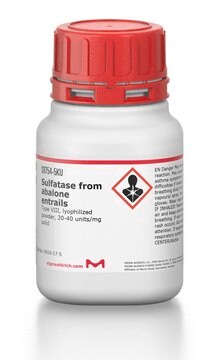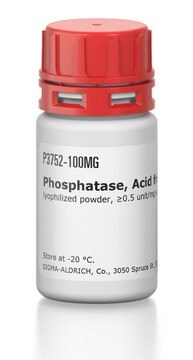1.02827
Cyclohexane
for liquid chromatography LiChrosolv®
Synonym(s):
Hexahydrobenzene, Hexamethylene, Naphthene
About This Item
Recommended Products
vapor density
2.9 (vs air)
Quality Level
vapor pressure
168.8 mmHg ( 37.7 °C)
77 mmHg ( 20 °C)
product line
LiChrosolv®
grade
isocratic
Assay
≥99.9% (GC)
form
liquid
autoignition temp.
500 °F
potency
>5000 mg/kg LD50, oral (Rat)
>2000 mg/kg LD50, skin (Rabbit)
expl. lim.
9 %
technique(s)
HPLC: suitable
impurities
≤0.0002 meq/g Acidity
≤0.0002 meq/g Alkalinity
≤0.01% Water
evapn. residue
≤2.0 mg/L
transmittance
230 nm, ≥75%
240 nm, ≥90%
260 nm, ≥99%
refractive index
n20/D 1.426 (lit.)
kinematic viscosity
1.26 cSt(20 °C)
bp
80.7 °C (lit.)
mp
4-7 °C (lit.)
transition temp
flash point -18 °C
density
0.779 g/mL at 25 °C (lit.)
storage temp.
2-30°C
SMILES string
C1CCCCC1
InChI
1S/C6H12/c1-2-4-6-5-3-1/h1-6H2
InChI key
XDTMQSROBMDMFD-UHFFFAOYSA-N
Looking for similar products? Visit Product Comparison Guide
General description
Application
- Phytochemical Profiling and Biological Potential of Prunus dulcis Shell Extracts.: Cyclohexane is utilized here for the extraction and analysis of bioactive compounds in almond shells, illustrating its application in natural product chemistry and analytical methodologies. The study underscores cyclohexane′s effectiveness in extracting valuable phytochemicals for potential therapeutic and commercial use (Ben Khadher T et al., 2023).
- Determining the Antibacterial Effect of Mentha Longifolia Essential Oil on Cariogenic Bacteria and Its Compounds: an in vitro Study.: In this study, cyclohexane is employed as a solvent to isolate essential oils for antibacterial testing, highlighting its critical role in enhancing the efficacy of natural antimicrobial agents. The research contributes to the development of cyclohexane-based methods for studying and applying essential oils in dental health (Shazdehahmadi F et al., 2023).
Preparation Note
Analysis Note
Identity (IR): conforms
Evaporation residue: ≤ 2.0 mg/l
Water: ≤ 0.01 %
Acidity: ≤ 0.0002 meq/g
Alkalinity: ≤ 0.0002 meq/g
Transmission (at 230 nm): ≥ 75 %
Transmission (at 240 nm): ≥ 90 %
Transmission (from 260 nm): ≥ 99 %
Filtered by 0.2 µm filter
Other Notes
Legal Information
Signal Word
Danger
Hazard Statements
Precautionary Statements
Hazard Classifications
Aquatic Acute 1 - Aquatic Chronic 1 - Asp. Tox. 1 - Flam. Liq. 2 - Skin Irrit. 2 - STOT SE 3
Target Organs
Central nervous system
Storage Class Code
3 - Flammable liquids
WGK
WGK 2
Flash Point(F)
-4.0 °F - closed cup
Flash Point(C)
-20 °C - closed cup
Certificates of Analysis (COA)
Search for Certificates of Analysis (COA) by entering the products Lot/Batch Number. Lot and Batch Numbers can be found on a product’s label following the words ‘Lot’ or ‘Batch’.
Already Own This Product?
Find documentation for the products that you have recently purchased in the Document Library.
Protocols
broad spectrum insecticide, egradation product, phenylpyrazole pesticide, World Health Organization (WHO), HPLC, UV, testing of Fipronil and Fipronil sulfone in Food
Our team of scientists has experience in all areas of research including Life Science, Material Science, Chemical Synthesis, Chromatography, Analytical and many others.
Contact Technical Service










